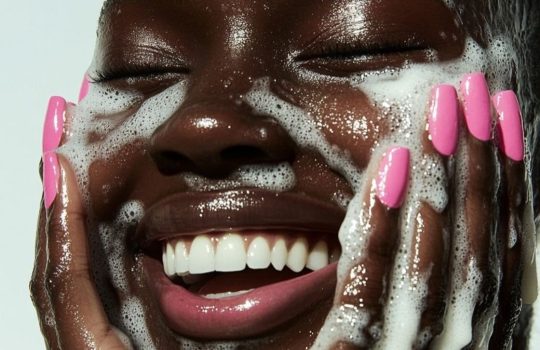Your skin is home to billions of microorganisms, collectively known as the skin microbiome. Far from being harmful, these microbes work like an invisible army protecting you from bad bacteria, reducing inflammation, and keeping your skin balanced. But when the microbiome is disturbed, issues like acne, dryness, or sensitivity often follow. Understanding how to nurture this ecosystem is key to achieving long-lasting skin health.
1. What Is the Skin Microbiome?
The skin microbiome is the community of bacteria, fungi, and tiny organisms that live on your skin’s surface. Just like the gut microbiome, it helps regulate immunity and balance. A healthy microbiome prevents harmful bacteria from taking over, reduces the risk of infection, and even supports hydration and barrier repair.
2. What Disrupts the Skin Microbiome?
Everyday habits can throw this balance off, including:
- Harsh soaps and cleansers that strip natural oils.
- Overuse of antibiotics, both oral and topical.
- Environmental stressors like pollution.
- Diets high in processed foods and low in fibre.
- Excessive exfoliation or alcohol-based skincare.
3. Signs of an Unbalanced Skin Microbiome
If your microbiome is disrupted, you might notice:
- Frequent breakouts or acne flare-ups.
- Persistent redness or sensitivity.
- Excessive dryness or tightness.
- Eczema or itchy patches.
These are signs that your microbiome requires additional support.
4. How to Support the Microbiome on your Skin
- Choose gentle cleansers: Look for pH-balanced, sulfate-free products.
- Feed it from within: Fibre, prebiotics (bananas, garlic, onions), and probiotics (yoghurt, kefir, fermented foods) support microbial balance.
- Avoid over-exfoliation: Once or twice weekly is enough for most skin types.
- Nourish with barrier-friendly skincare: Ingredients like ceramides, oat extract, and niacinamide protect both the barrier and microbiome.
5. Everyday Tips for a Healthy Microbiome
- Avoid “over-sanitising” your skin — some microbes are helpful.
- Get regular sleep — circadian rhythm influences skin immunity.
- Stay hydrated — water supports both the barrier and microbiome.
- Protect your skin from sunlight — UV damage disrupts microbial diversity.
The microbiome on your skin shows us that beauty is truly about balance. By nourishing the good microbes and avoiding habits that strip them away, you can achieve skin that is calmer, clearer, and more resilient. Healthy skin is alive, and your microbiome is proof.






